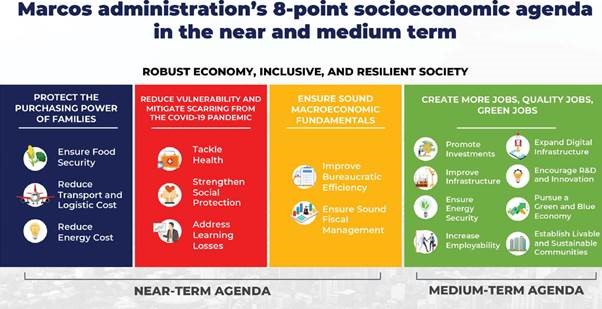Google's Monopoly: Why Breakup Talk Is Louder Than Ever

Table of Contents
Antitrust Concerns and Legal Challenges
For years, Google has faced numerous antitrust lawsuits and regulatory investigations globally. These legal battles highlight serious concerns about Google's monopolistic practices and their impact on the competitive landscape. The sheer scale of Google's market share across various sectors fuels these concerns.
- Search Engine Manipulation: Accusations include manipulating search results to favor Google's own products and services, disadvantaging competitors. This preferential treatment limits consumer choice and stifles innovation.
- Favoritism towards Google's Own Products: Critics argue that Google prioritizes its own services (like Google Maps, Google Shopping, and YouTube) in search results, even when competitors offer superior alternatives. This tactic allegedly leverages Google's dominant position in search to bolster its other businesses.
- Anti-competitive Practices in the Android Mobile Operating System Market: Google's control over Android, the world's most popular mobile operating system, has been subject to intense scrutiny. Allegations of pre-installing Google apps and services on Android devices, creating barriers to entry for competing app stores and mobile operating systems, further contribute to the monopoly concerns.
- Control over Advertising Technology: Google's dominance in online advertising, through platforms like AdSense and AdWords, raises concerns about its ability to control ad pricing and access to advertising inventory, limiting opportunities for smaller publishers and advertisers.
These legal battles have resulted in significant fines and regulatory interventions, impacting Google's operations and potentially shaping its future direction. The ongoing legal challenges underscore the gravity of the concerns about Google's monopoly and its implications for fair competition.
Stifling Innovation and Competition
Google's immense market share creates significant barriers to entry for smaller competitors, hindering innovation and limiting consumer choice. Aspiring tech companies face considerable challenges trying to compete with a behemoth like Google.
- Difficulty Competing for Advertising Revenue: Google's dominance in online advertising makes it extremely difficult for smaller companies to secure advertising revenue, severely limiting their growth potential.
- Limited Access to Crucial Data and Distribution Channels: Google controls vast amounts of data and possesses crucial distribution channels, making it challenging for smaller players to access the resources necessary to compete effectively.
- Struggle to Attract Users in a Google-Dominated Market: The sheer brand recognition and user base of Google products make it incredibly difficult for smaller companies to attract and retain users, further reinforcing Google's dominance.
This stifling of competition prevents the emergence of potentially innovative alternatives and ultimately harms consumers who benefit from a vibrant and competitive marketplace. Examples like the struggles faced by smaller search engines or map providers highlight the impact of Google's monopoly on innovation.
Consumer Data Privacy and Concerns
Google's vast data collection practices raise significant privacy concerns. The company collects massive amounts of user data across its numerous platforms, raising questions about transparency and potential misuse.
- Data Tracking Across Multiple Platforms: Google tracks user activity across its various services (Search, Gmail, YouTube, Android), creating detailed profiles that can be used for targeted advertising and other purposes.
- Targeted Advertising and its Potential for Manipulation: While personalized advertising can be beneficial, the scale and intrusiveness of Google's data collection raise concerns about potential manipulation and the erosion of user autonomy.
- Lack of Transparency Regarding Data Usage: Critics argue that Google lacks sufficient transparency regarding how user data is collected, used, and shared, eroding consumer trust and fueling calls for greater regulation.
These privacy concerns are directly linked to the debate surrounding Google's monopoly. Many argue that breaking up Google could lead to improved data privacy protections and greater transparency.
The Growing Power of Google's "Other" Products (Alphabet Inc.)
The interconnectedness of Google's various subsidiaries under Alphabet Inc. further strengthens the perception of a monopoly. The synergy between Google's core services and its other ventures, such as YouTube, Waymo (autonomous vehicles), and Verily (life sciences), creates a powerful ecosystem that reinforces its market dominance. This integration allows for cross-promotion and data sharing across platforms, creating a nearly insurmountable barrier for competitors. The combined market share across these entities significantly amplifies the overall impact of Google's monopoly.
Conclusion
The concerns surrounding Google's monopoly are multifaceted and deeply rooted. Antitrust concerns, stifled innovation, data privacy worries, and the overarching power of Alphabet Inc. all contribute to the mounting pressure for a Google breakup. The future of the digital landscape depends on addressing these issues effectively. Stay informed about the ongoing debates and advocate for a more competitive and equitable tech ecosystem. Engage with relevant organizations advocating for increased competition and consumer protection to ensure a healthier and fairer digital market. Addressing Google's monopolistic practices is crucial for fostering innovation, protecting consumer privacy, and ensuring a truly competitive marketplace.

Featured Posts
-
 Trumps Economic Agenda Winners And Losers
Apr 22, 2025
Trumps Economic Agenda Winners And Losers
Apr 22, 2025 -
 Why Robots Struggle To Replicate Human Skill In Nike Sneaker Production
Apr 22, 2025
Why Robots Struggle To Replicate Human Skill In Nike Sneaker Production
Apr 22, 2025 -
 Razer Blade 16 2025 Review Ultra Settings On A Thin Laptop
Apr 22, 2025
Razer Blade 16 2025 Review Ultra Settings On A Thin Laptop
Apr 22, 2025 -
 Analyzing The Economic Costs Of Trumps Policies
Apr 22, 2025
Analyzing The Economic Costs Of Trumps Policies
Apr 22, 2025 -
 Bof A On Stock Market Valuations Why Investors Shouldnt Panic
Apr 22, 2025
Bof A On Stock Market Valuations Why Investors Shouldnt Panic
Apr 22, 2025
